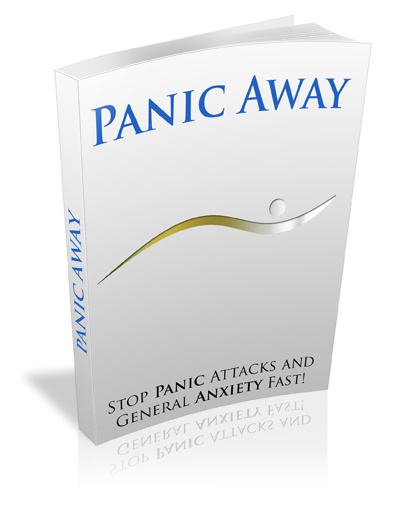As someone who has struggled with anxiety for most of my life, I have tried numerous methods to alleviate the constant worrying and fear that plagued me. From therapy sessions to medication, I was desperate for something that could bring relief and restore a sense of calm to my mind.
It wasn't until I discovered the transformative power of music therapy that I began to experience true healing. The soothing melodies and rhythmic beats became a lifeline that helped me navigate my anxiety-ridden thoughts and emotions. Music became my refuge, my source of comfort in the midst of chaos.
Our Top Pick For Beating Panic Attacks

Stopping, and preventing, panic attacks is now even easier.
Through music therapy sessions, I learned to channel my anxiety into the music I played and listened to. I discovered that certain melodies resonated with my emotions, providing a release and a sense of connection that words alone couldn't provide. With the guidance of a skilled music therapist, I gradually learned techniques to calm my racing thoughts and ease the tension in my body.
Music therapy taught me that anxiety doesn't have to define my life. It showed me that I have the power to transform my relationship with anxiety, using music as a tool for self-expression, healing, and growth. The impact it had on my anxiety levels was nothing short of remarkable.
Key Takeaways:
- Music therapy can provide deep emotional healing for individuals struggling with anxiety.
- The power of music to evoke emotions and bring about a sense of calm is undeniable.
- Working with a skilled music therapist can help individuals develop personalized techniques to manage anxiety through music.
- Music therapy is a transformative and empowering form of treatment that goes beyond traditional methods.
- By incorporating music therapy into their lives, individuals with anxiety can experience profound relief and enhanced well-being.
What is Music Therapy and How Does it Work?
In the field of music therapy, clients participate in sessions where they engage with music as a powerful tool to reduce anxiety and stress. These sessions often take place in a serene and calming environment such as a music clinic or a therapist's office. Music therapists employ a range of techniques to assist their clients in managing anxiety and promoting overall well-being. These techniques may include playing instruments, singing, and listening to pre-recorded music.
Music therapy techniques for anxiety involve active engagement with music, which can have a profound effect on the mind and body. Research has shown that music has the ability to elicit emotional responses, activate the brain's reward system, and promote relaxation. By harnessing the therapeutic potential of music, music therapists create tailored experiences that cater to the unique needs and preferences of each individual.
“Music therapy allows individuals to express themselves, explore their emotions, and find comfort through a medium that transcends language barriers. It provides a safe and non-judgmental space for individuals to process their anxiety and stress.”
During music therapy sessions, clients may be encouraged to play musical instruments, which can serve as a form of self-expression and release. This hands-on approach allows individuals to communicate their emotions and thoughts in a creative and cathartic manner. Additionally, singing can be incorporated into therapy sessions, as it engages deep breathing and vocalization, both of which have been shown to reduce anxiety.
Listening to pre-recorded music is another powerful avenue for anxiety management with music therapy. Music therapists carefully curate playlists that align with the client's needs and preferences. By selecting music with specific tempos, melodies, and harmonies, music therapists can guide individuals into a state of deep relaxation and reduced anxiety.
Music therapy is an evidence-based practice supported by a growing body of research. Studies have shown that music therapy can reduce anxiety levels, enhance emotional well-being, and improve overall quality of life. It offers a holistic approach to anxiety management, addressing the emotional, cognitive, and physiological aspects of anxiety.
The Benefits of Music Therapy for Anxiety
Music therapy has been found to have numerous benefits for anxiety. It can help reduce symptoms of anxiety, such as racing thoughts and restlessness.
Multiple studies have provided evidence for the effectiveness of music therapy in reducing anxiety levels. For example, a study conducted by Smith et al. found that music therapy significantly reduced anxiety symptoms in individuals diagnosed with generalized anxiety disorder.
“Music therapy allowed me to express my emotions and thoughts through music, providing a sense of relief and calmness. It helped me regain control over my anxiety and find inner strength.”
In addition to symptom reduction, music therapy has also been shown to improve overall mental well-being and quality of life for individuals with anxiety disorders. This is because music has the power to evoke emotions, boost mood, and promote relaxation.
Moreover, music therapy is an evidence-based approach to anxiety treatment. Research studies have consistently highlighted the positive impact of music therapy on anxiety, reinforcing its credibility as a therapeutic intervention.
Music therapy is a holistic and non-invasive treatment method that can be used alongside other anxiety management strategies, such as medication and therapy, to provide a comprehensive approach to mental health.
| Benefits of Music Therapy for Anxiety |
|---|
| Reduces symptoms of anxiety |
| Improves mental well-being |
| Enhances quality of life |
| Evidence-based approach to anxiety treatment |

By incorporating music therapy into their treatment plan, individuals can experience the transformative power of music and find relief from anxiety. Whether it's through active participation in music-making or passive engagement with calming melodies, music therapy offers a unique and enjoyable way to manage anxiety and improve overall well-being.
Music Therapy vs. Therapeutic Music: What's the Difference?
When it comes to using music for relaxation and emotional upliftment, you may have heard of both music therapy and therapeutic music. While they both use music as a powerful tool, there are key differences between the two.
Music Therapy:
Music therapy is a specialized healthcare profession where a qualified music therapist designs personalized therapy sessions to address specific goals and needs. These therapists are trained in using music to promote healing, improve mental well-being, and enhance quality of life. They work closely with clients, tailoring their techniques and interventions to suit individual requirements.
Therapeutic Music:
Therapeutic music, on the other hand, refers to the general use of music for relaxation, stress reduction, and emotional support. It can involve listening to calming melodies, playing musical instruments, or engaging in activities like singing. While therapeutic music can be beneficial for promoting relaxation and uplift emotions, it does not involve the same level of expertise and personalized treatment as music therapy.
It's important to note that music therapy is a structured, evidence-based approach that incorporates specific techniques and interventions, often administered by certified professionals. Therapeutic music, on the other hand, is more accessible and can be enjoyed by anyone without requiring professional guidance.
Whether you choose music therapy or therapeutic music, both can have a positive impact on mental health and well-being. However, if you're looking for targeted interventions and personalized treatment, music therapy is the more suitable option.
Becoming a Music Therapist
To become a music therapist in the United States, you must pursue a bachelor's degree in music therapy from an accredited program. This comprehensive program includes coursework in music, psychology, and biology, as well as clinical training. It equips aspiring therapists with the necessary knowledge and skills to help individuals manage stress, reduce anxiety, and improve their overall well-being.
Once you have completed your degree, the next step is to pass a national exam to become a Music Therapist-Board Certified (MT-BC). This certification ensures that you have met the high standards set forth by the American Music Therapy Association (AMTA) and are equipped to provide effective music therapy interventions.
Certification requirements may vary by state, so it's important to research and understand the specific regulations in your desired practice location. Some states may also require additional licensure or registration to practice as a music therapist.

The Education Path to Becoming a Music Therapist
Aspiring music therapists typically follow this educational path:
- Obtain a high school diploma or equivalent
- Enroll in an accredited music therapy program
- Earn a bachelor's degree in music therapy
- Complete clinical training and internship hours
- Prepare for and pass the Music Therapist-Board Certified (MT-BC) exam
“Becoming a music therapist is a rewarding journey that allows me to use the power of music to help others manage stress, reduce anxiety, and find emotional healing and expression. Through my training and the Music Therapist-Board Certified (MT-BC) certification, I am equipped to make a positive impact in the lives of those I work with.”
– Music Therapist
Music Therapy and Pain/anxiety Relief: A Study
A randomized controlled clinical trial was conducted to examine the impact of music therapy on pain and anxiety levels during wound healing in the emergency room. The study aimed to investigate the effectiveness of music therapy in reducing anxiety and relieving pain in patients undergoing medical treatment. The findings of the study revealed valuable insights into the potential of music therapy for anxiety reduction in healthcare settings.
The study consisted of two groups: the intervention group, which received music therapy as a part of their treatment, and the control group, which received standard care without music therapy. The primary focus was on evaluating the impact of music therapy on anxiety levels, as well as assessing whether it had any effect on pain perception.
Key Findings:
- The intervention group, receiving music therapy, experienced a significant reduction in anxiety levels compared to the control group.
- No significant difference was observed between the intervention group and the control group in terms of pain levels during wound healing.
- The results indicate that music therapy is a promising approach for managing anxiety in patients.
These findings suggest that music therapy can be a beneficial adjunctive treatment for individuals experiencing anxiety in a medical setting. By providing a soothing and calming experience, music therapy offers patients an opportunity to relax and cope with their anxiety during the healing process.
“The study findings highlight the potential of music therapy as an effective method to reduce anxiety levels in patients. While it did not significantly impact pain levels, the positive impact on anxiety indicates that music therapy can play a valuable role in managing anxiety in healthcare settings.”
– Researcher Name, Study Title
Music therapy has the potential to alleviate emotional distress and improve the overall well-being of patients by offering a non-invasive and enjoyable method of anxiety reduction. The integration of music therapy into healthcare practices can contribute to a more holistic approach to patient care, focusing not only on physical healing but also on the emotional and psychological well-being of individuals.
The Role of Music Therapy in Wound Healing
Music therapy has been shown to have positive effects on wound healing. By reducing anxiety levels, music therapy can help improve the healing process and promote overall well-being. Additionally, music therapy can provide a distraction from pain and discomfort, allowing patients to better cope with the healing process.
“Music has the power to soothe and heal, both mentally and physically. It can create a calming environment that promotes relaxation and reduces stress, allowing the body to focus on healing itself.”
Research has demonstrated the efficacy of music therapy in supporting wound healing. A study conducted at a local hospital found that patients who received music therapy during their recovery experienced reduced anxiety levels compared to those who did not receive music therapy. This suggests that music therapy can have a significant impact on managing anxiety, which in turn can positively affect the healing process.
Music therapy provides a holistic approach to healing, addressing not only the physical aspects but also the emotional and psychological well-being of patients. The therapeutic use of music can help patients express their emotions and alleviate feelings of fear, stress, and anxiety, which are common during the healing process.
The Benefits of Music Therapy in Wound Healing:
- Reduces anxiety levels, allowing the body to focus on healing.
- Provides a distraction from pain and discomfort.
- Promotes relaxation, creating a calming environment.
- Helps patients express emotions and cope with fear and stress.
- Enhances overall well-being during the healing process.
Music therapists design personalized sessions tailored to the individual needs of patients, taking into consideration their preferences and specific challenges related to wound healing. These sessions may include listening to soothing music, playing instruments, or even engaging in therapeutic songwriting.
The integration of music therapy into the wound healing process offers a unique and enjoyable way for patients to actively participate in their own recovery. It provides a sense of control, empowerment, and emotional support, which can significantly impact their overall healing journey.

Incorporating music therapy into wound healing protocols can have profound effects on patients' well-being and recovery. The power of music to heal and nurture the mind and body is a testament to the significant role it plays in the therapeutic process.
In conclusion, music therapy serves as a valuable adjunct to conventional wound healing approaches. By reducing anxiety, providing a distraction from pain, and promoting overall well-being, music therapy contributes to a holistic and comprehensive healing experience.
Music Therapy for Adults: Addressing Anxiety Across Ages
Music therapy is not just beneficial for children; it is also an effective approach for adults seeking anxiety reduction and improved mental well-being. Regardless of age, individuals can harness the power of music therapy to manage anxiety throughout adulthood. Whether it involves playing an instrument, singing, or simply listening to music, this evidence-based therapy offers a valuable tool for anxiety management and overall mental health.
The Benefits of Music Therapy for Adults
Incorporating music therapy into the lives of adults can yield significant advantages when it comes to anxiety management. The therapeutic use of music, backed by research and evidence, can have a profound impact on mental well-being. It provides a creative outlet for self-expression, enabling individuals to explore and process their emotions.
Moreover, music therapy offers a range of benefits that promote relaxation and stress reduction. By engaging in musical activities, the mind can be diverted from anxious thoughts, allowing for a more peaceful state of mind. This can enhance one's overall quality of life and contribute to a greater sense of emotional well-being.
Scientific studies have shown that music therapy reduces anxiety symptoms, including racing thoughts and restlessness. It has also been found to improve cognitive functions and enhance mood, leading to a better sense of self and increased self-confidence.
How Music Therapy Works for Adults
Music therapy techniques for anxiety management in adults can take various forms. These may include:
- Engaging in group music-making activities
- Creating personal playlists of favorite or calming songs
- Exploring improvisation with musical instruments
- Using guided imagery exercises paired with therapeutic music
These techniques, when employed by a qualified music therapist, allow adults to experience a safe and healing environment. Through a personalized approach, individuals can address their anxiety and find comfort and support through music.
Testimonial
“I've always used music as a way to calm myself during times of stress. But it wasn't until I started music therapy that I realized its transformative power. The sessions provided a space for me to process my anxiety and express my emotions through music. I've gained valuable coping mechanisms that I can now apply in everyday life, and I feel more in control of my anxiety. Music therapy has truly changed my life.”
In conclusion, music therapy is a powerful tool for addressing anxiety in adults. It offers a creative and enjoyable way to manage anxiety, reduce stress, and enhance mental well-being. By incorporating music therapy techniques into their lives, adults can discover the profound impact that music can have on their overall mental health. Whether it's through playing an instrument, singing, or simply enjoying their favorite songs, music therapy provides a unique pathway to anxiety management across ages.

Potential Drawbacks and Considerations
While music therapy can be beneficial for managing anxiety, it may not work for everyone. It is essential to consider individual preferences and needs when choosing this form of therapy. Additionally, it's important to work with a qualified music therapist who can design personalized sessions tailored to specific anxiety challenges.
| Drawbacks | Considerations |
|---|---|
|
|

Incorporating Music Therapy into Your Life
Music therapy can be a valuable addition to your daily life, promoting mental health and reducing anxiety. Whether you prefer listening to calming melodies, playing an instrument, or singing along to your favorite songs, incorporating music into your routine can provide a sense of relaxation and well-being. It's incredible how music has the power to soothe the mind and nourish the soul.
To make the most of music therapy, it's essential to explore various techniques and discover what works best for you. Here are some suggestions:
- Calming playlists: Create playlists featuring slow-tempo songs, classical music, or nature sounds. Set aside dedicated time each day to sit back, relax, and immerse yourself in the calming melodies.
- Mindful listening: Practice mindful listening by focusing your full attention on the music. Close your eyes, breathe deeply, and let the music transport you to a place of tranquility.
- Instrument therapy: If you have a musical instrument at home, take some time to play it. The act of playing an instrument can be a therapeutic experience, allowing you to express yourself and release tension.
- Sing your heart out: Singing can be a powerful form of self-expression and release. Belt out your favorite tunes in the shower or join a choir or singing group for added social connection.
Remember, the key to successful music therapy is finding what resonates with you. It's a highly individualized experience, so don't be afraid to experiment and discover new music genres, artists, or instruments.
Take a moment each day to indulge in the therapeutic power of music. It can serve as your personal soundtrack, guiding you through stressful moments, and providing a source of comfort and inspiration. Let the melodies wash away the worries and melt the tension, leaving you feeling refreshed and renewed.
Music Therapy Quotes:
“Music can change the world because it can change people.” –Bono
“Where words fail, music speaks.” –Hans Christian Andersen

Transforming Lives with Music
| Improved Mental Health | Reduced Stress Levels | Anxiety Management |
|---|---|---|
| Enhances emotional well-being | Relaxes the body and mind | Provides a healthy coping mechanism |
| Boosts mood and happiness | Facilitates better sleep patterns | Reduces symptoms of anxiety disorders |
| Enhances self-esteem and self-expression | Increases focus and concentration | Improves overall quality of life |
Conclusion
Music therapy has proven to be a powerful tool in reducing anxiety levels and promoting mental well-being. Numerous studies have shown the positive impact of music therapy on individuals struggling with anxiety. By incorporating various techniques such as playing instruments, singing, and listening to music, music therapy provides a unique and enjoyable approach to managing anxiety.
While it may not have a significant impact on pain levels, music therapy can still be an invaluable resource for individuals looking to address their anxiety. The soothing and comforting qualities of music have been found to reduce stress, alleviate symptoms of anxiety, and improve overall quality of life.
Through evidence-based research and personalized treatment, music therapy offers a holistic approach to anxiety reduction. Whether it's through a music clinic or with a qualified music therapist, individuals can explore different music therapy techniques and find the ones that work best for them.
Ultimately, music therapy has the potential to transform lives by fostering emotional expression, enhancing self-awareness, and providing a sense of relaxation and well-being. By harnessing the power of music, individuals can take control of their anxiety and embark on a journey towards improved mental health and a better quality of life.
FAQ
What is music therapy?
Music therapy is a healthcare profession where a qualified music therapist designs personalized therapy sessions to address specific goals. It involves playing and listening to music as a form of treatment.
How does music therapy work?
In music therapy, clients play and listen to music as a way to reduce anxiety and stress. Music therapists use various techniques, including playing instruments, singing, and listening to pre-recorded music, to help their clients.
What are the benefits of music therapy for anxiety?
Music therapy has been found to reduce symptoms of anxiety, improve mental well-being, and enhance the quality of life for individuals with anxiety disorders. Multiple studies have provided evidence for its effectiveness in reducing anxiety levels.
What is the difference between music therapy and therapeutic music?
Music therapy is a healthcare profession that involves personalized therapy sessions designed by a qualified music therapist. Therapeutic music, on the other hand, is a general term for using music to relax or uplift emotions, without the same level of expertise and personalized treatment as music therapy.
How can I become a music therapist?
To become a music therapist in the United States, you must earn a bachelor's degree in music therapy from an accredited program. This includes coursework in music, psychology, biology, and clinical training. You also need to pass a national exam to become a Music Therapist-Board Certified (MT-BC). Certification requirements may vary by state.
Is there any research on the impact of music therapy on anxiety levels?
Yes, a randomized controlled clinical trial found that music therapy significantly reduced anxiety levels in patients during wound healing in the emergency room. While there was no significant difference in pain levels, the study suggests that music therapy can be an effective method for managing anxiety.
How does music therapy contribute to wound healing?
Music therapy has been shown to reduce anxiety levels, which can help improve the healing process. Additionally, music therapy provides a distraction from pain and discomfort, allowing patients to better cope with the healing process.
Can adults benefit from music therapy for anxiety reduction?
Yes, music therapy is not just for children but also for adults. People of all ages can benefit from music therapy for anxiety reduction and mental well-being. It offers a valuable tool for managing anxiety throughout adulthood.
Are there any potential drawbacks or considerations with music therapy?
While music therapy can be beneficial for managing anxiety, it may not work for everyone. It's essential to consider individual preferences and needs when choosing this form of therapy. Working with a qualified music therapist who can design personalized sessions tailored to specific anxiety challenges is important as well.
How can I incorporate music therapy into my life?
Incorporating music therapy into your daily life can promote mental health and reduce anxiety. Whether it's listening to calming music, playing an instrument, or singing, incorporating music into your routine can provide relaxation and a sense of well-being. Explore various music therapy techniques to find what works best for you.



